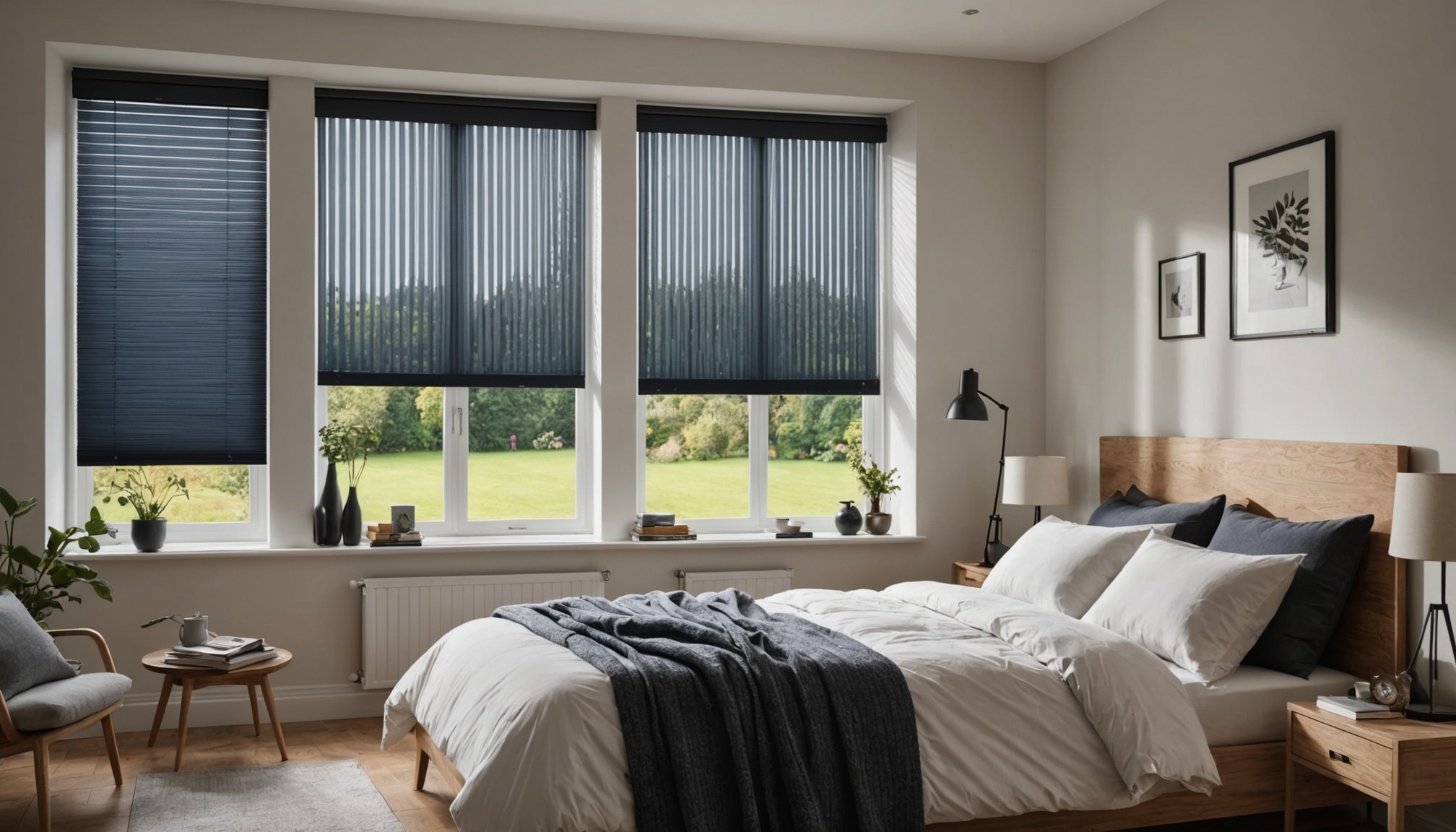The cost of heating homes in the UK has been a significant concern for many homeowners, particularly during the cold winter months. With the rise of smart technology, homeowners are looking for innovative ways to keep their houses warm while also reducing energy costs. One such way is through the use of smart window blinds. These are not your ordinary blinds, but advanced devices that could potentially help you save on energy costs. They use various mechanisms, including heat insulation, light regulation, and solar energy, to make your home more energy efficient. This article will explore how smart window blinds work and how they can make your home more efficient.
The Role of Window Blinds in Energy Efficiency
Window blinds play a crucial role in enhancing the energy efficiency of your home. Traditional blinds help to regulate the amount of light entering a room, but their role extends beyond this basic function when they are upgraded with smart technology.
Sujet a lire : Maximizing Energy Efficiency: The Ultimate Guide to Smart Thermostats for UK Households
Smart window blinds can reduce the amount of heat lost through windows, one of the most significant sources of heat loss in a home. They are designed to provide excellent thermal insulation by creating a barrier between the window and the room, thereby reducing the amount of heat that escapes. This ability to retain heat within the room makes smart blinds a valuable addition to your home, especially during the winter months when heating costs skyrocket.
Apart from bolstering thermal insulation, smart blinds can also regulate the amount of light that enters a room. They can be programmed to adjust to different positions at various times of the day, thereby controlling the room’s temperature. During sunny winter days, the blinds can be set to open, allowing sunlight to naturally heat the room. In contrast, during the colder periods of the day, the blinds can be closed to trap the heat.
Avez-vous vu cela : Ultimate Guide to Sustainable Kitchen Renovation in the UK: Eco-Friendly Tips & Ideas
How Smart Blinds Work
Understanding how smart blinds work will give you a better perspective on their potential to save on heating costs. Unlike traditional blinds, smart blinds are automated and can be controlled remotely using a smartphone or voice commands through devices like Amazon Alexa or Google Home.
Smart blinds work on two main principles: solar gain and thermal insulation. During the day, they leverage solar gain by allowing sunlight to penetrate the room, thereby naturally heating it up. This process is known as passive solar heating. At night, or when the weather is exceptionally cold, the smart blinds provide thermal insulation, reducing the amount of heat lost through the windows.
Some smart blinds are equipped with solar panels, which harness solar energy to power their operations. This not only contributes to energy saving but also ensures that the blinds can function even during power outages, providing consistent temperature regulation.
Blackout Blinds for Maximum Insulation
In considering the best types of smart blinds to install for maximum energy savings, blackout blinds are a worthy contender. These blinds are designed to block out all light, making them an excellent option for thermal insulation.
Blackout blinds can significantly reduce the amount of heat escaping through your windows, making them an efficient way to keep your home warm during the cold UK winter. They are also handy during the summer months by blocking out the sunlight and keeping the rooms cool, thereby reducing the need for air conditioning.
If you want to get the best of both worlds – light regulation and thermal insulation – consider investing in smart blackout blinds. They can be programmed to open and close at specific times, ensuring that you harness natural light during the day and insulate your home during the colder periods.
The Future of Smart Blinds
The future of smart blinds looks promising, with advances in technology set to make them even more energy efficient. Developments are underway to improve their ability to harness solar energy and convert it into electricity, which can then be used to power other devices in the home. This not only enhances energy efficiency but also reduces reliance on the grid.
Moreover, smart blinds are becoming more integrated with home automation systems, allowing for more seamless control. In the future, these blinds will likely be able to learn your routines and adjust accordingly, providing optimal light control and thermal insulation without you having to lift a finger.
To reiterate, smart window blinds have the potential to significantly reduce heating costs in the UK winter. Through thermal insulation, light regulation, and harnessing solar energy, these blinds can make your home more energy-efficient. Investing in smart window blinds is, therefore, a smart move for anyone looking to cut down on energy costs.
The Variety of Efficient Blinds Available
When it comes to energy-efficient window treatments, there isn’t a one-size-fits-all solution. The best choice for your home will depend on a variety of factors, including your budget, aesthetic preferences, and specific energy saving goals. A wide range of efficient blinds are available, each offering distinct advantages.
Roller blinds are a popular choice for their simplicity and affordability. They are easy to install and operate, and come in a range of materials, including thermal and blackout fabrics, that can help to reduce heat loss. A well-fitted roller blind can form an insulating pocket of air in front of the window, reducing heat transfer and helping to maintain a comfortable temperature in the room.
Vertical blinds are ideal for covering large windows or patio doors. Thanks to their orientation, they can easily be adjusted to control light levels and privacy, and when made from energy-efficient materials, they provide effective insulation against heat loss.
Venetian blinds, made from horizontal slats, are useful for controlling the amount of sunlight that enters the room. Depending on the material they’re made of, they can also provide good insulation. In particular, wooden venetian blinds are noted for their natural insulating properties.
Honeycomb blinds, also known as cellular blinds, are designed with small pockets or ‘cells’ that trap air, creating a barrier at the window that reduces heat gain in summer and heat loss in winter. This makes them one of the most efficient window coverings for insulation.
Electric blinds offer the highest level of convenience. They can be programmed to open and close automatically at set times, using sensors to adapt to changes in light and temperature. This enables them to provide optimal light regulation and thermal insulation, without any effort required on your part.
Potential Savings from Smart Window Blinds
Investing in energy efficient blinds could lead to significant savings on your heating bills. To understand how much you could save, it’s important to consider the heat loss that occurs through windows. This can account for up to 30% of your home’s total heat loss, meaning that effective window treatments can make a substantial difference to your energy consumption.
Let’s take thermal blinds as an example. These blinds, which have a reflective backing to minimize heat loss, can reduce heat loss through windows by up to 25%. This means that if you currently spend £1,200 a year on heating, installing thermal blinds could save you as much as £90 a year.
Blackout blinds, as mentioned earlier, are another excellent choice for reducing heat loss. By completely blocking light, they also prevent solar heat gain, making them beneficial both in winter and in summer.
While it’s clear that the potential savings from smart window blinds can be significant, it’s also worth noting that the exact amount you save will depend on a variety of factors, including the type and size of your windows, the local climate, and your home’s overall energy efficiency.
Conclusion
In conclusion, smart window blinds present a promising solution for homeowners in the UK looking to reduce their heating costs. With a variety of types available, including roller blinds, vertical blinds, venetian blinds, honeycomb blinds, and electric blinds, there is an option to suit every home and budget. By providing effective insulation and light regulation, these advanced window coverings can greatly enhance energy efficiency, leading to significant energy savings in the long term.
Beyond their immediate benefits, smart blinds also represent an investment in the future, with advances in technology set to make them even more efficient and convenient. As part of an overall approach to energy saving, they can play an integral role in making your home more eco-friendly and sustainable, while also saving you money.
In conclusion, whether you’re seeking to reduce heat loss in winter, control solar heat gain in summer, or simply make your home more comfortable and efficient, investing in smart window blinds is a move worth considering.











